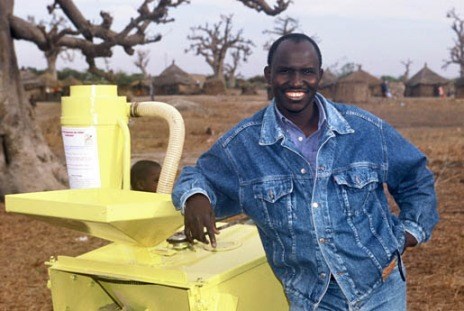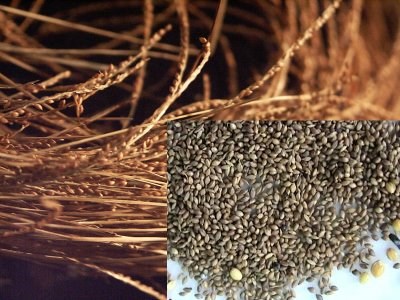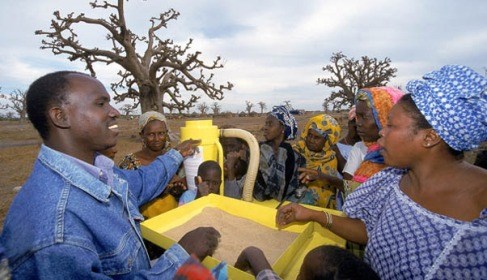 |
| Sanoussi Diakite (http://rolexawards.com/en/the-laureates/sanoussidiakite-home.jsp) |
More often than not, in the West we take for granted how much work truly goes into the preparation of food -- that is, the labor required to create ‘basic’ ingredients that most of us can simply drive to the grocery store and purchase.
Perhaps we would be more aware, were we in a more agrarian epoch, but instead, thanks to the Industrial Revolution, and droves of modern technologies that have emerged since, we assume that wheat and flour and barley and other such staple crops can be easily processed on machinery for our consumption.
Yet across the world, in some regions such as in Africa, staple crops are still husked and prepared by hand, most of the time with tools as primitive as a pestle and mortar.
One such crop is fonio, a staple grain in western Africa, native to the Sahara region.
Fonio grains are very small, and removing the brittle outer shell is a difficult and meticulous process. Yet, as they have for over 500 years, African women have prepared fonio by hand – pounding a mixture of it and sand, and yet in one hour of this wearisome process, only two kilograms of fonio are obtained, and additionally require 15 liters of water to remove the sand.
This is particularly frustrating because fonio cereal is a great source of nutrition, exceptionally rich in iron, protein, and fiber, and unlike most other crops, is able to survive in tough conditions. Tolerating little rainfall and poor soil, folio can still produce up to three crops a year.
 |
| Fonio image from: foodlorists.blogspot.com |
For Africa, a continent plagued by droughts and famine, plants like fonio can quite literally mean the difference between life and death. And yet the process is so painstaking, that few people use this precious resource.
In fact, what was once considered a common dish is now a prized meal, typically only used for special occasions because of the heavy workload it requires.
Sanoussi Diakite wants to change that.
Having helped prepare fonio as a child, and remembering what he considers to be a ‘torturous’ and painful process on the arms, Diakite made it his mission to create a machine to replace the arduous labor.
The Senegalese mechanical engineer, who moved to the capital city of Dakar from his home town of Kolba, invented a machine that reduces the labor dramatically - making what was once a one hour process take only a few minutes!
The machines use flexible plastic plates that rotate over the fonio seed and gently rub off the husks without damaging the grain. Some of the machines run off an electric motor, and others on oil and petrol.
Farmers who had been progressively abandoning this crop despite it being renowned throughout Africa for its delicious taste, see Diakite’s invention as the catalyst for the revival of this beloved cereal.
 |
| Sanoussi Diakite (href=http://rolexawards.com/en/the-laureates/sanoussidiakite-home.jsp) |
Today, the machine is present in a number of African nations, and without fail, in those regions, farmers are subsequently planting more fonio.
To the Sahara region, and other areas particularly stricken by drought and famine, this crop could turn out to be a life-saver, both in terms of personal nutrition for local residents, and as an income-earner for farmers.
In fact, for as much as fonio is loved by Africans, it is also highly prized in Africa by foreigners, and in Europe by West African immigrants, and is believed to have the potential for further international expansion and financial revenue for Africa.
Thanks to Diakite’s impressive invention, the new-found user-friendly nature of a once complicated staple encourages and reestablishes both the growth and consumption of it, helping to put an end to the starvation and malnutrition which has come to be a sad fact of life in so many African regions.
Diakite, during a course of trial-and-error over three years invented the machine in his spare time and built his prototypes at the local high school with his students. He funded his own project, and once invented, explored all possible venues to gain additional funding, and still does so. His was not a big-budget production, but rather one of dedication and the desire to reach a worthy goal. In fact, Diakite proves that the common man can do a great deal of uncommon good when he sets his mind to it.
Page created on 7/4/2013 11:33:04 AM
Last edited 1/6/2017 6:29:24 PM
